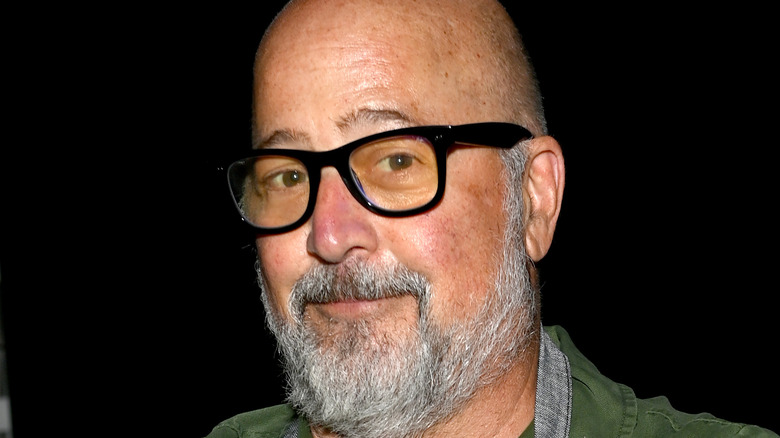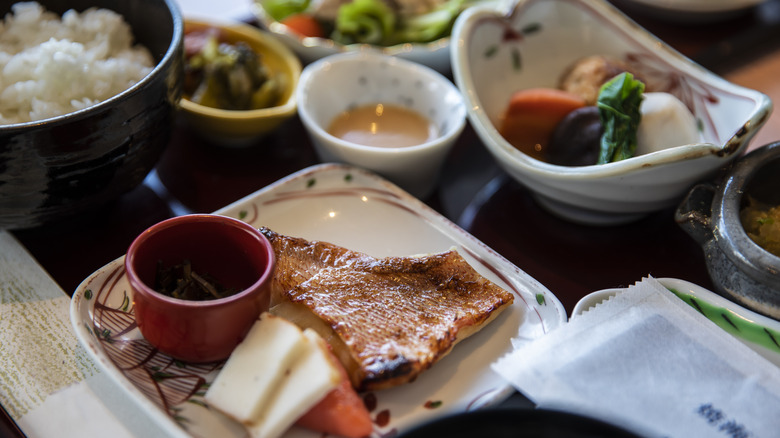The Nutritional Reason Andrew Zimmern Prefers Japanese Breakfasts
If anybody could be considered the authority on global gastronomic styles, a strong case could be made for Andrew Zimmern. In his Travel Channel show "Bizarre Foods with Andrew Zimmern," the chef traverses the globe sampling some of the most unusual fares across all edges of the world, "from restaurants to jungle markets." Zimmern is an outspoken champion of Palestinian food and the NYC icon Peter Luger steakhouse. But, while the New York native chef appreciates and praises some of the best food cities in the U.S., Zimmern has repeatedly expressed an affinity for the culinary stylings of Japan. He's a huge fan of Japanese kewpie mayo — and he prefers Japanese breakfasts.
On a typical day, Zimmern isn't much of a breakfast eater. ("I'm a cup of coffee person," says the chef via Lifehacker.) For a quick bite, he's a regular customer at NYC bagel shop Russ & Daughters, where he reportedly orders a whitefish or lox spread bagel "at least every other day." But, when Andrew Zimmern does sit down for a proper brekky, it's inspired by Japanese morning meals. So, what does it look like? And what's the hype about?
Zimmern opts for a miniature protein-packed dinner (for breakfast)
Not to be confused with the indie-rock band Japanese Breakfast, a traditional morning meal in Japan consists of multiple small dishes. It looks a lot like a tiny dinner. Unlike the classically sweet French breakfast (a croissant with jam and coffee, per FrenchToday), Japanese breakfasts are primarily savory. According to the Japanese travel guide Kanpai!, rice, eggs, grilled fish, fermented soybeans called natto, and miso soup are all commonly served. Think those are just lunch or dinner foods? Think again. The name of the game with Japanese breakfast is smaller portion sizes. Zimmern confesses to Lifehacker that he "oftentimes will eat ... leftover broiled fish, some little vegetables, and just make a little miniature dinner for [him]self, for breakfast. A couple of bites of each, and it's perfect."
You won't find fried potatoes, greasy bacon, or sugary pancakes in a traditional Japanese breakfast spread. "The American breakfast is toxic for people," says Zimmern. "It's all that sugar and carbohydrates." Instead, the protein-heavy, well-balanced, larger Japanese breakfast keeps foodies fueled all day long. According to Christy C. Tangney, Ph.D., a professor of clinical nutrition at Rush University, frontloading the day with protein staves off unhealthy snack choices throughout the day and boosts metabolism.

